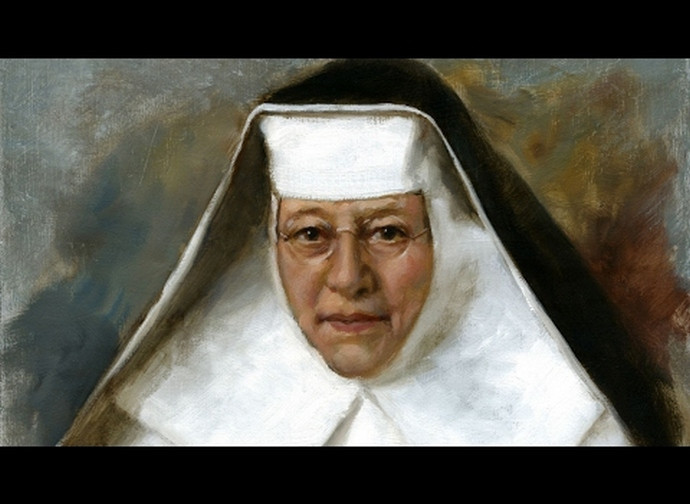Saint Katharine Drexel
Several decades before the world's spotlights were focused on African Americans, Saint Katharine Drexel (1858-1955) was a missionary among them and the American Indians, fostering their education and bringing them the proclamation of Christ.

Several decades before the world's spotlights were focused on African Americans, Saint Katharine Drexel (1858-1955) was a missionary among them and the American Indians, fostering their education and bringing them the proclamation of Christ. The second daughter of the wealthy banker Francis Anthony Drexel, a Christian dedicated to works of charity, she was born in Philadelphia and lost her mother when she was just five weeks old. Her father remarried in 1860 to Emma Bouvier, a devout Catholic, who gave him another daughter and proved invaluable to the three sisters' growth in faith. The family met every day to pray together, and twice a week they distributed food, clothing, and monetary assistance to families struggling to pay their rent. Her beloved stepmother died in January 1883 and Katharine, who had assisted her in her three-year fight against cancer, became deeply conscious of how ephemeral earthly things were and began to think about religious life.
That same year she travelled to Europe and while contemplating an image of Our Lady in Saint Mark’s Basilica in Venice, she seemed to hear these words: “Freely you have received, freely give”. In 1884 she and her family members became aware of the conditions of Native Americans in the Western states of the USA and she decided to do something concrete to help them. Her father died the following year, leaving his daughters an inheritance of 14 million dollars (today about 400 million). In his will, to protect them from swindlers, he had arranged that at their death, if they left no children (as in fact happened, due to various circumstances, including the illness that struck the firstborn daughter in 1890), the entire estate would be divided between religious orders - specifically the Society of Jesus, the Ladies of the Sacred Heart, the Christian Brothers - and other charitable works.
In 1887, a few months before a meeting with Red Cloud, she and her sisters were received in a private audience by Leo XIII. Katharine asked him to send priests as missionaries among the Indians. The Pope's reply surprised her: “My daughter, why don't you become a missionary yourself?”. It was the pivotal moment. When she was back home she turned again to her spiritual director James O'Connor, who some time earlier, questioned by Katharine about her desire to enter a contemplative order, had urged her to wait a little longer and pray. The saint began her novitiate in a convent of the Sisters of Mercy; in 1891 she took religious vows and - advised by Father O'Connor - founded the Sisters of the Blessed Sacrament for Indians and Colored People (in Latin Institutum sororum a Sanctissimo Sacramento pro indianis gentibusque coloratis), thus uniting her intention to dedicate herself to the contemplation of God with her mission among the peoples.
Mother Katharine, a friend of Saint Frances Cabrini, received requests for help from various parts of the United States, which were counterbalanced by the aversion of certain sectors of society, linked to a racist vision. The first warning was a stick of dynamite found on the site where the mother house of the new institute was being built. In the face of adversity, Katharine always relied on Divine Providence and saw the number of vocations grow. During her long earthly life - marked in the last 18 years by a serious illness, which she offered to God as her own cross - she was able to found 145 missions, 50 Catholic schools for African Americans (in addition to Xavier University in Louisiana) and 12 for Native Americans, guaranteeing them a good education and fostering their encounter with Christ. To this end she also had a Catechism printed in Navajo, the language spoken by many Native Americans. And she never tired of conveying the need to pray and adore Jesus in the Eucharist, which she believed was the only way to true unity among individuals and all peoples.
